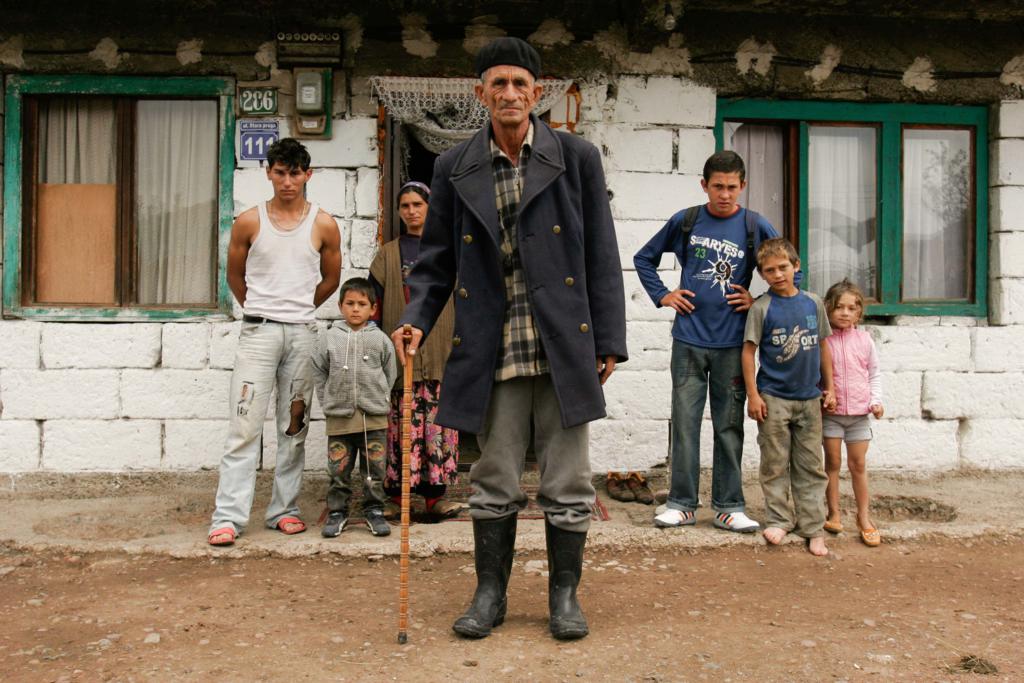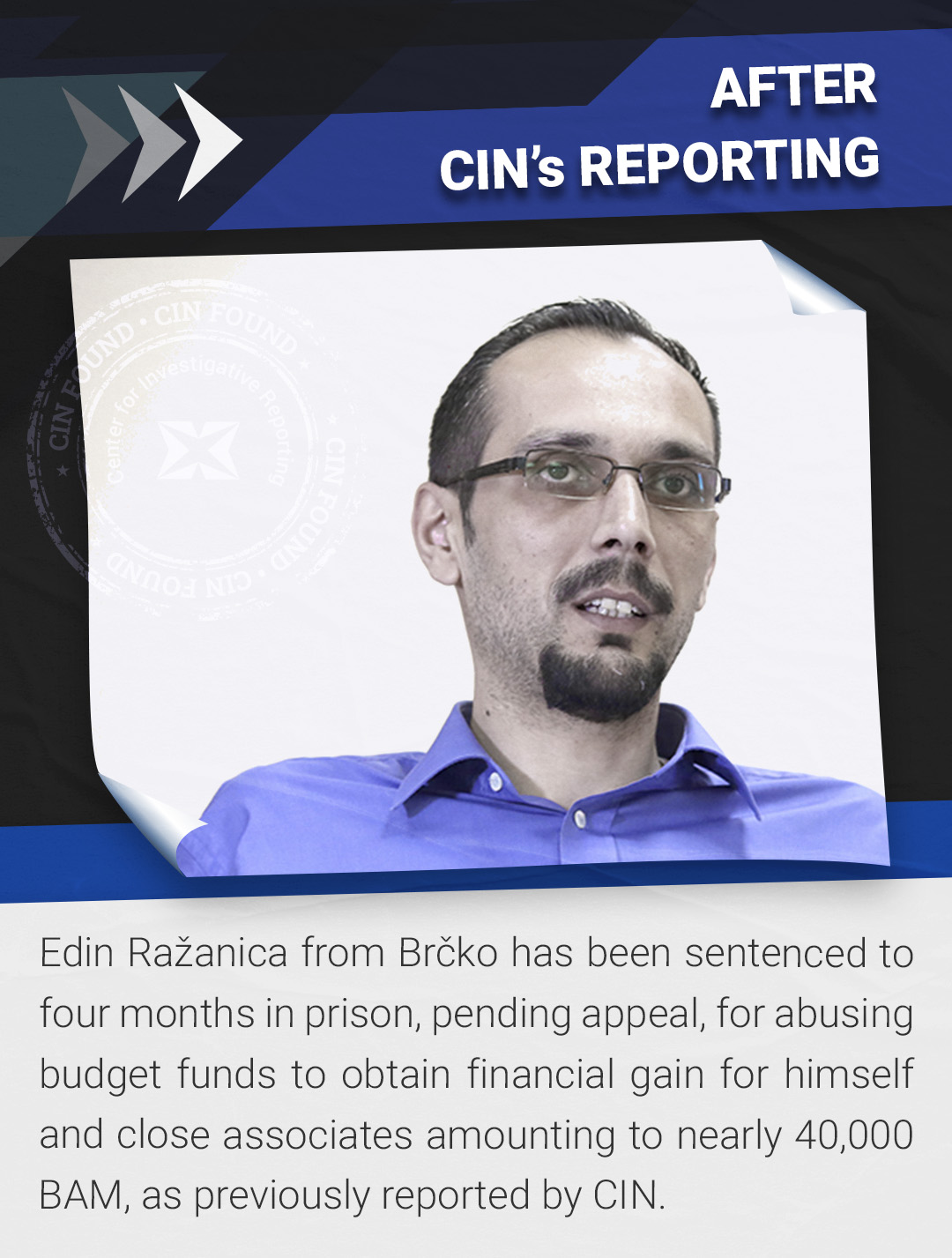He is disappointed with the way he was chased out of the Federation of Bosnia and Herzegovina (FBiH) Railways and was forced to sign away his job for a severance package worth 8,500 KM.
“Everything was done abruptly, by blackmail,” Buljubašić said. “The union in Tuzla and a legal advisor told us – if you don’t take it, in a month there will be a new (labor) law and you won’t get a dime. After 34 years of work, I had to accept.”
However, what he was told may not have been true. A search of legal records by the Center for Investigative Reporting in Sarajevo (CIN) found no amendment to the labor law that Buljubašić could be threatened with. Under Bosnian laws, he should have been offered another suitable job or retraining. Older and disabled workers said they were never considered for other jobs at the railroad that they could still perform. And even if jobs were not available, Buljubašić should have at least gotten some severance as required by law.
An evaluation of records and interviews given to the CIN show that the railroads flaunted labor laws to rid themselves of older and less productive workers. At the same time, it has openly engaged in nepotism to fill spots usually with younger workers.
Slimming Down the Staff
FBiH Railways formulated a plan in 2003 to improve staffing. After reassigning workers, they found they had 265 extra workers. Management said there simply wasn’t enough work to go around and that the extra workers would be cut. Of those workers, most were partially disabled from years of hard work.
Pašaga Alimanović, 60, a maintenance worker from Tuzla, was fired in 2005. He was told that there was no other place he could be moved to and that he had to leave the company.
“I asked to do anything, to be a janitor, caretaker, anything,“ but he was not offered another job, he said.
“The majority of people couldn’t be retrained because they were old and disabled,“ said Narcis Džumhur, director general of FBiH Railways.
But instead of reducing staff, the railroads kept hiring. In 2004, the year 182 people signed away their jobs, they hired 188 new workers. By April of this year, FBiH Railways had 4035 workers, 475 more than when the plan was formulated in 2003.
”In the meantime, we got a new factory in Blažuj. We got a new factory in Rajlovac. We got one in Zenica and a new station in Capljina, got new machines … where we needed to hire people,“ said Džumhur. He said that the railroad’s new workload means they’ll need at about 230 new workers. Džumhur held out the possibility that some older workers could return.
In the RS, while more than 150 workers were laid off since 2003, during the period between 2003 and mid 2006 another 243 workers have been hired. Overall, total employment in the RS Railways has fallen slightly.
In an August 2006 complaint against RS Railways, traffic inspector Milan Kiković of the Office of Inspections said management in RS Railways laid off people at the same time it was hiring people with identical qualifications.
The law stipulates that employers must make an offer to former employees first if a position opens where they are qualified. No worker CIN talked with was offered different jobs and the issue was never even raised.
Pressure Sell
Like Buljubašić, most of the people felt they were pressured to sign agreements to quit. RS Railways adopted a similar approach. Ranko Bunjevac, a former RS Railways worker, said, “They told us, there is no work around. Whether you like it or not you have to take it.”
CIN reporters talked to 10 laid off workers and nine of them reported almost indentical pressure by railroad and union representatives to sign papers.
FBiH workers said one person who pressured them was Emina Sokoli, a social worker for the FBiH Railways office in Tuzla, who told CIN she was following orders from FBiH Railway supervisors.
“The signature was not extorted. They had written documents. Some workers did not sign and are still working. Everything is legal and documented,“ said Sokoli. Railroad and union officials say their offer was more than generous and that the workers should not complain.
Disunity in the Unions
Some workers say they have been poorly served by unions that have worked more for management’s interests than their own.
The largest union in the Federation, the BiH Railways Workers Union, agreed to layoffs, while workers said union representatives pressured members to sign agreements.
Asked repeatedly whether the union pressured workers, Munir Spahić, the president of the BiH Railways Workers Union, said, “Nobody got a dismissal note who didn’t sign.“ He characterized the dismissed workers as low-qualified people who had no chance to get another job.
Workers say their union conspired with management to mislead workers in return for management support of the union by automatically signing workers up to the union.
“No one asked me anything, but they just presented me with a (union) membership ID,“ said Ešref Mešinović, a FBiH Railways employee from Sarajevo.
Muharem Konjević, 40, of Bihać survived the layoffs because he said he was a member of the Train Drivers Union, which refused to go along with them. Dozens of workers either refused to sign or were supported by their unions and didn’t have to sign.
Workers also say the RS Railways Workers Union was of little help, so they organized themselves. Sixty-four workers sued their bosses who laid them off and won at the first level. If confirmed, they will be reinstated and awarded 450,000 KM.
Paying for Layoffs
To pay for their severance package, the railroads took out a €2.5 million loan from the European Bank for Reconstruction and Development (EBRD), which was guaranteed by the entity governments.
Workers in FBIH got 8,500 KM, while RS workers were offered either 5,900 KM or 11,700 KM, depending on when they were laid off.
The EBRD required that the layoffs be voluntary and that no worker should be forced.
“This is the first time I heard about it,” said Josip Polić, coordinator of infrastructure programs for the bank. Polić said workers should have refused to sign documents.
Polić said the railroad justified hiring additional workers by saying there was an increase in work volume.
Given that railroads chronically operate at very large losses, it may be that BiH taxpayers will end up paying much of the cost of the loan – €3.5 million including interest over the 15-year life — for layoffs that in many cases might not have been necessary.
Railroad Boom Town
Two towns that have long benefited from the railroads are Vareš and Breza. Dozens of prewar and current FBIH Railways workers reside in the area. CIN reporters talked to a dozen villagers, many of whom have relatives in the railroad business. They praise Smajo Salketić, an FBiH railroad executive director from nearby Dabravina, as a good man who has helped dozens of youths from the area find jobs. Salketić defended the railroad practice of laying off while hiring.
“We needed new workers. Younger, because of the job specifics,“ he said.
Salketić denies he is the reason so many have been hired from the area but defends nepotism. Railways workers have traditionally come from the same families, he said. Salketić’s father and grandfather worked in the railways and today he, his wife and a nephew work there as well.
“Why would that be a problem? They know best about railway issues,” he said. “Try finding a job with a post office or one of the utility companies. No way (you’ll get one) if you don’t know someone.“








